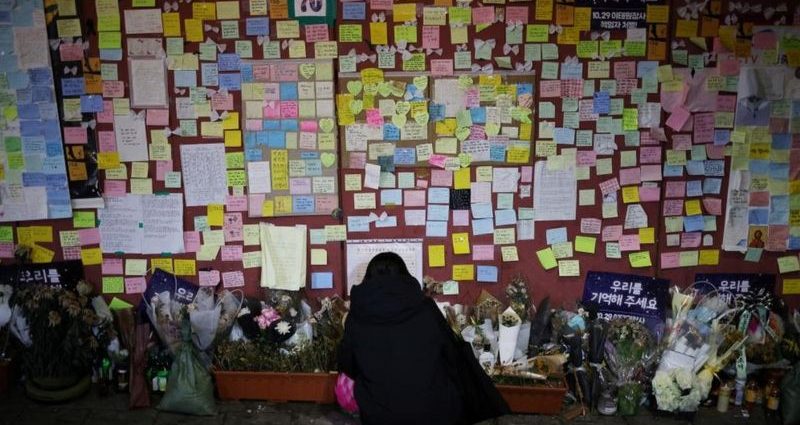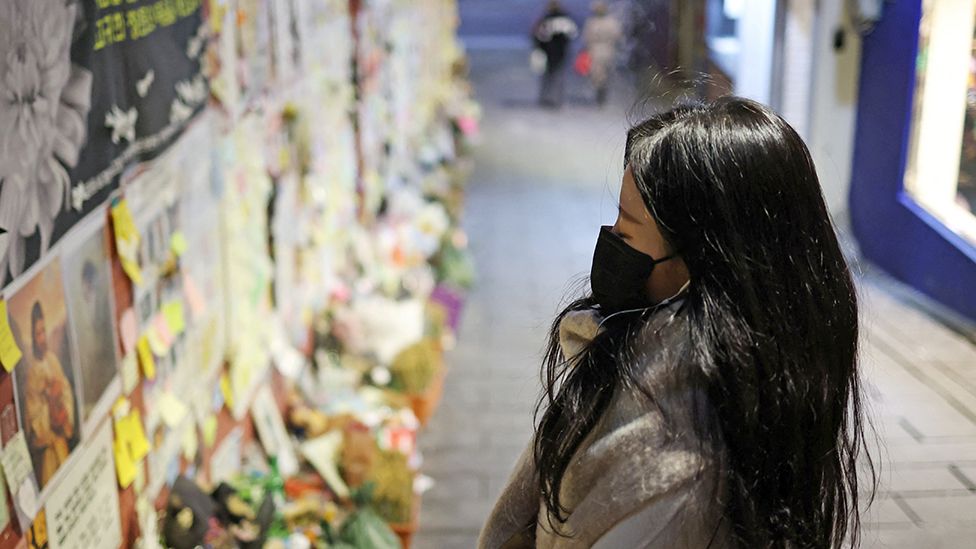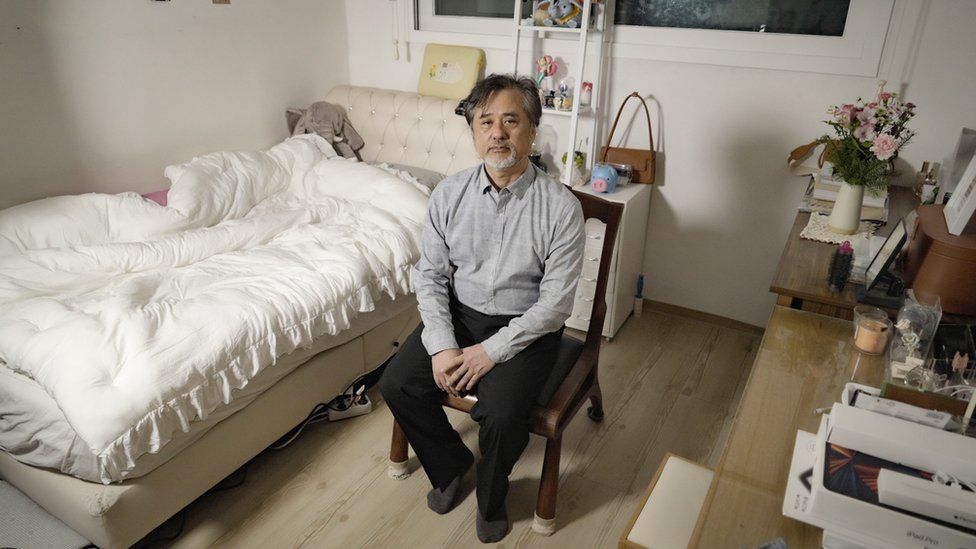
Lee Joo-young’s bedroom has been left exactly how it was on 29 October, the night she left and didn’t come back.
“She was a charismatic girl,” her father Jung-min says, smiling.
“She was definitely a leader, she ran her own business. She had me, my wife and her brother all under her thumb.”
Joo-young was 29 and due to get married this September. In fact, she’d just bought her wedding dress before deciding, spur of the moment, to go on a Halloween night out with her fiancé in Itaewon in South Korea’s capital Seoul where she lived.
Extreme overcrowding in the district’s tight streets that night would lead to a crush, killing 159 mostly young people. Lee Joo-young’s fiancé survived, but she didn’t.
Mr Lee and the rest of Seoul’s bereaved families now want justice to be served. For the past month, he’s worked as vice-chair of the Association of Families of Itaewon Disaster Victims.
But what they want and what’s being offered to them are worlds apart.
According to the findings of a long-awaited police investigation, the crush was avoidable. Weak planning, non-existent crowd control and a poor emergency response meant it was a “man-made disaster”.
Twenty-three officials now face jail time for “death by professional negligence”. Separately, two police officers were arrested in November on suspicion of ordering the deletion of an internal report that spoke of safety concerns during the Halloween period.
But those indicted are mainly police officers and local councillors operating in the district where the crush took place.
In other words, high-ranking figures in South Korea have been spared any blame for what happened. The Association of Families of Itaewon Disaster Victims called it “cutting off the lizard’s tail to spare the head”.
“We never trusted the Special Police Division to investigate the Itaewon disaster properly. We’ve been saying from the beginning that family cannot investigate family,” says the group’s chairman, Lee Jong-chul.
“No one was questioned, for example, in the interior ministry. Nor was the mayor of Seoul or the national police chief. We think they must all take responsibility for what happened.”
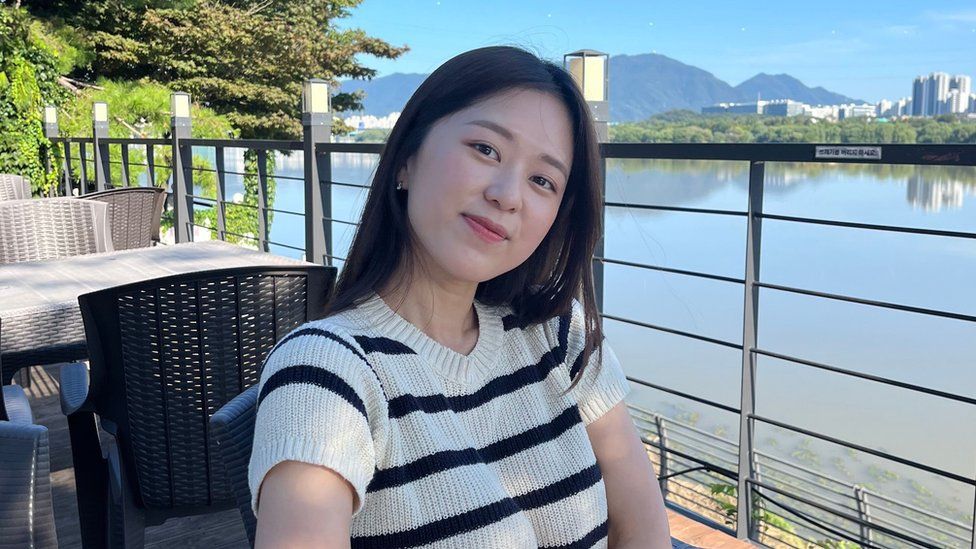
But what exactly does “responsibility” mean? This is at the heart of the Itaewon disaster and its aftermath.
Proving that, say, South Korea’s interior minister was criminally responsible for a Saturday night in a neighbourhood in Seoul seems a distant and, some might argue, unfair prospect.
But the families argue that it’s about more than legal culpability.
“For the past three months, the government has treated us with indifference, with no sincerity,” says Mr Lee.
“I understand criminal accountability is harder to ask for, but there is such a thing as ethical accountability.”
Over the course of the past 10 weeks, the question of a formal apology has come up time and again. The word “sorry” has been spoken by everyone from the local district police chief to South Korea’s president, but what exactly that word means often descends into a debate on semantics.
The victims’ relatives feel those in command are apologising for their loss, apologising for actions of others, apologising for the tragedy of the situation. Anything that doesn’t involve taking direct responsibility.
There’s also an inescapable feeling, when talking to the families, that the authorities have been cold and insensitive at every turn.
A high-profile example came in November, when a teenager who lost his best friend and his girlfriend in the tragedy took his own life.
Describing the death as “heart-breaking”, the South Korean prime minister went on to say “it would have been better if he had been a little stronger and sought treatment”. Following harsh criticism, the government decided to include the teenager in the official death toll.
Then there were the revelations that police asked to test victims’ bodies for illegal drugs. Or parents’ claims that they weren’t allowed to touch their children for a final time and give them a proper goodbye. Or reports that police questioned underage survivors in hospital wards with no guardians present.
It all contributes to a lingering sense of outrage which, nearly three months on, is making it hard for families and the country as a whole to find closure.
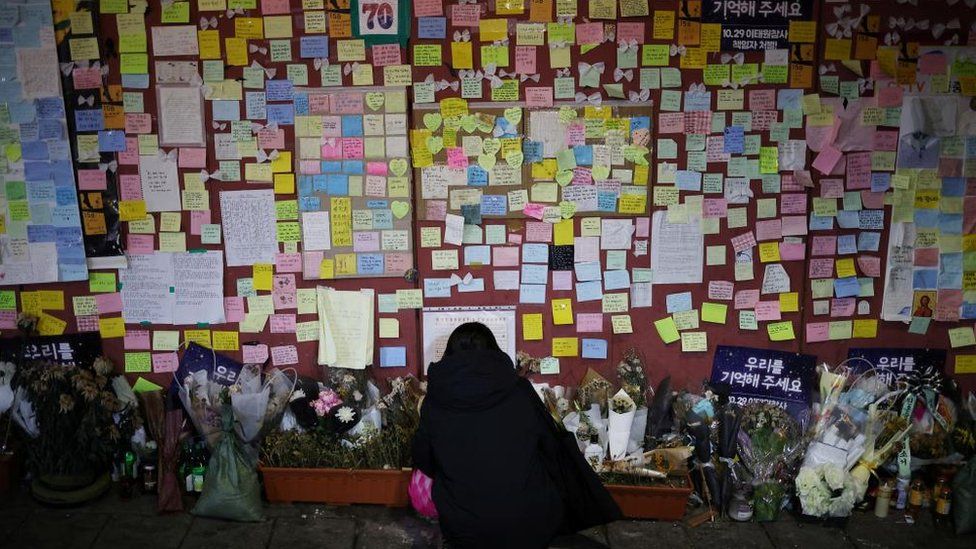
Since November, more than 5,600 people have received support from the National Centre for Disaster and Trauma, where a special Itaewon branch was set up.
“The Itaewon disaster is in many ways a national disaster,” says the centre’s director Dr Sim Min Young.
“We’ve seen people with panic attacks, post-traumatic stress, anxiety. Some people weren’t even there, they just saw things on TV and social media.
“In my experience, no matter how thorough the investigation is, there is no perfectly clear answer that will soothe the hearts of the victims. But that doesn’t mean families don’t still have a right to a faithful investigation and to our support. This is crucial to recovery.”
After nearly three months of campaigning, Mr Lee says he’s exhausted, but he goes into his daughter’s room when he feels he needs energising.
“I am determined to get an apology from those in power, so my daughter can close her eyes in peace. I’ve told her, ‘Dad will do his best’.”
This week a parallel parliamentary investigation ended in disarray amid political divisions. The main opposition party, which led the inquest, now says it will report the interior minister and the country’s national police chief for perjury.
But ultimately, it will be down to prosecutors to decide how far they want to pursue criminal responsibility for the disaster.
Acceptance, if and when it comes, will be a matter for the families to decide.
-
-
5 November 2022
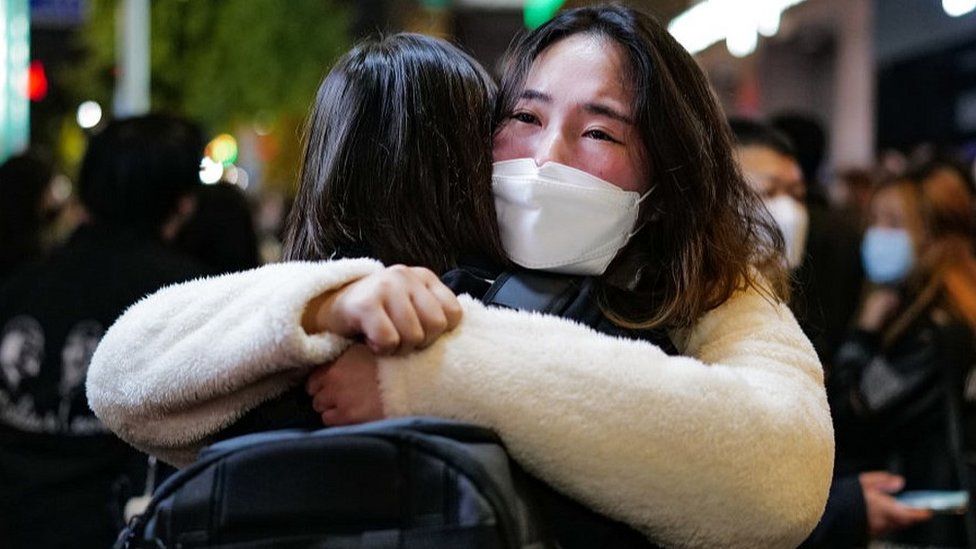
-
-
-
2 November 2022
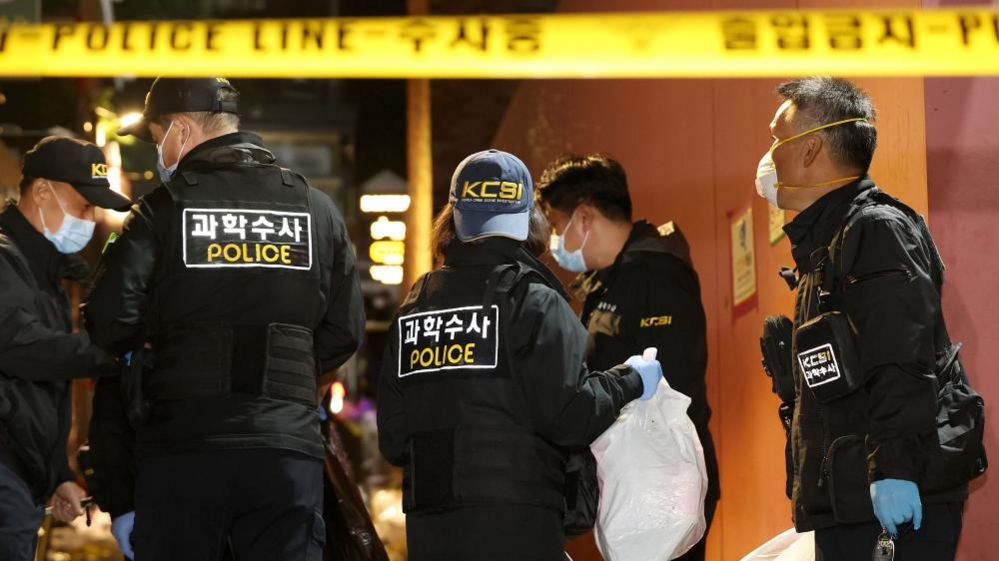
-

